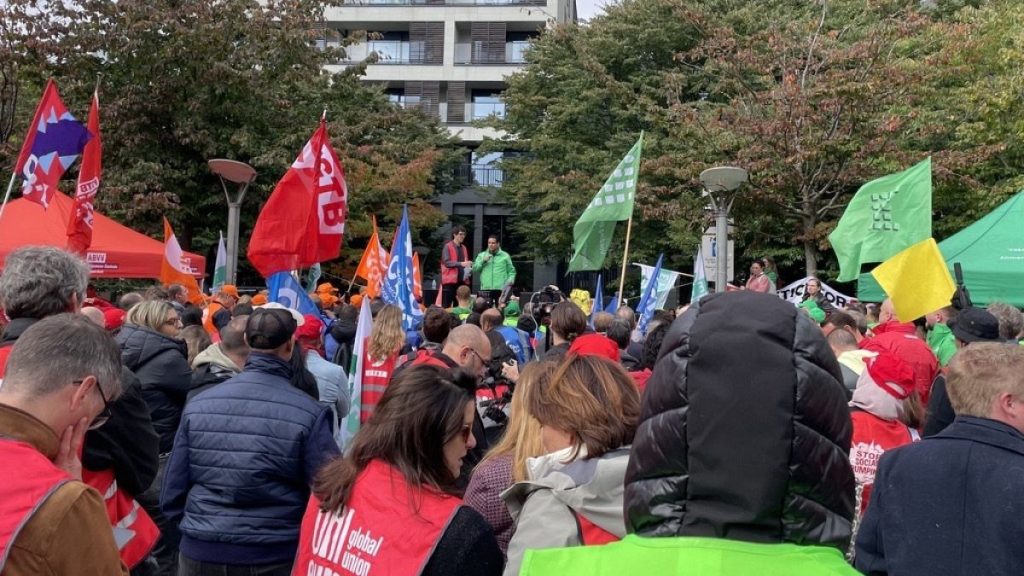A thousand workers from cleaning, security, and catering services are protesting in Brussels to demand that the €2 trillion public procurement market funds good working conditions and environmental targets. The workers are calling for fair working conditions and a reform of the EU’s public procurement directives, holding trade union flags in the heart of Brussels’ European quarter. They are complaining about low wages, overloading workloads, and a lack of professional recognition for their work.
Some workers went on strike at Charleroi airport, disrupting flights from Brussels’ main airports, while others from countries such as Germany, France, Spain, and Italy are rallying outside the European institutions’ headquarters to pressure EU policymakers for new legislation. Trade union representatives are calling on EU Commission President Ursula von der Leyen to urgently overhaul the rules on public procurement to ensure that public money is used as leverage to improve workers’ conditions and doesn’t go to ‘bad employers’. Stéphane Séjourné has been tasked with reviewing the EU’s public procurement directives with a focus on simplifying the rules and reducing administrative burdens, but there has been no mention of sustainability or social aspects in his mission letter.
The EU’s public procurement market has become less competitive over the past decade, with most contracts still being awarded to the lowest bidder, focusing on cost rather than value for money, according to the European Court of Auditors. In eight member states, more than 80% of contracts were awarded to the lowest bidder, and the number of bidders per procedure has decreased, while the average duration of procurement procedures has increased. Despite a reform in 2014 to address these issues, procedures have not been simplified, access for SMEs has not improved, and innovative and social aspects have only been considered to a limited extent.
For industry group BusinessEurope, the existing problems in the public procurement market are attributed to ineffective enforcement and application of the rules, and they believe that a revision of the framework is not a suitable solution. The workers and trade unions are pushing for concrete proposals to strengthen the social criteria in the directive and ensure that public money is used to improve workers’ conditions and support sustainable practices. The workers are demanding changes to the public procurement directives to ensure fair working conditions, environmental targets, and social aspects are considered in awarding contracts to private companies. The protests highlight the importance of reforming the current system to provide better conditions for workers in the EU’s public procurement market.


